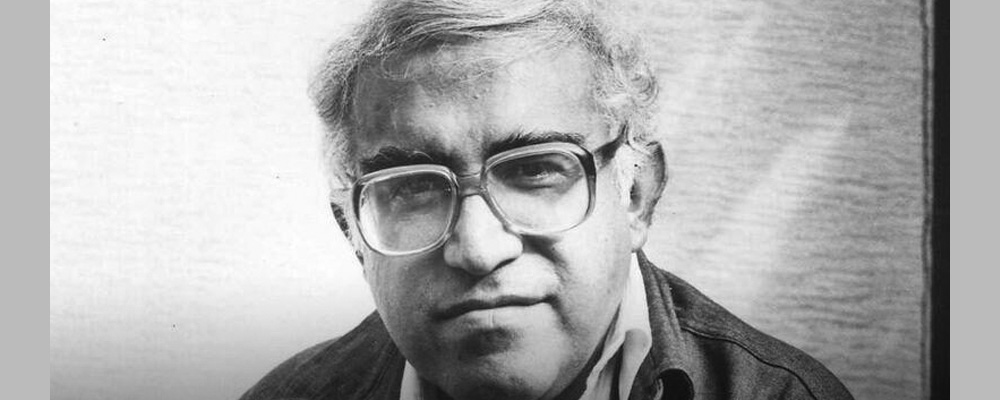
Learn about the life and work of Carlos Monsiváis, one of the greatest Mexican thinkers of the 20th century.
Carlos Monsiváis Aceves was a Mexican writer and journalist who dedicated his time and voice to defending minorities, supporting causes/movements that questioned the established system, analyzing/criticizing it and observing/studying Mexican society.
Monsiváis is recognized for his work in the chronicle and essay, where through a critical sense and ironic language, he addresses the issues that shape Mexican society, politics and culture, always offering a perspective for reflection.
Active both politically and socially, Monsiváis was passionate about and featured in a myriad of topics/activities of public interest, spaces in which his sharp intellect always had something to write about and hundreds of thousands of eyes that read him to this day, as his participation and point of view in social struggles (such as for sexual freedom or feminism) is unimpeachable and entirely relevant.
Learn about the life and work of Carlos Monsiváis, one of the greatest Mexican thinkers born in the last century.
Who is Carlos Monsiváis?
Born in Mexico City on May 4, 1938, Carlos Monsiváis Aceves was a student at the Faculty of Economics and the Faculty of Philosophy and Letters of the Universidad Nacional Autónoma de Mexico (UNAM). He also studied theology at the Presbyterian Seminary of Mexico and attended the Center for International Studies at Harvard University.
Monsiváis specialized in journalism, directing and collaborating with the most important Mexican periodicals, being co-founder and director of several of the magazines/periodicals that were influential in the development of journalism in Mexico.
Among the publications/groups for which he collaborated or in which he was a fundamental part are:
- Excélsior
- Novedades
- La Jornada
- El Universal
- Proceso
- Fractal
- Eros
- Letras Libres
- Revista de la Universidad de México
What was Carlos Monsiváis’ most important work?
Deciding which was the most important work of any author depends a lot on the approach we are thinking of, since most intellectuals like Carlos Monsiváis, who have contributed to the cultural and social formation of their country, have dealt with an infinite number of topics throughout their lives.
Carlos Monsiváis was essentially cultivated in chronicles and essays. Below, we share with you some of the titles that are part of Carlos Monsiváis’ collection of chronicles:
- Días de guardar (1971) Chronicle about the event that took place on October 2, 1968 in Tlatelolco.
- Amor perdido (1976) About certain icons of Mexican cinema, popular music, labor unions, leftist politics and the bourgeoisie’s way of thinking.
- Entrada libre (1987) This chronicle is about the new Mexican society.
- Los rituales del caos (1995) Addresses one of the worst moments for Mexican politics, in an era where democracy is almost extinct.
Social struggles and revolutionary movements
As an observer and scholar of Mexican society, Carlos Monsiváis, as a journalist and thinker, investigated and defended various issues such as the student movement of 1968, feminism, the struggle for sexual freedom, the decriminalization of abortion, animal rights, the cancellation of bullfighting, and saw a window to progress in any event or character that offered progressive ideas and questioned any established authority.
What was Carlos Monsiváis like in the cultural sphere?
Monsiváis was one of the greatest promoters of Mexican culture that our country has ever had; interested and concerned about the needs of the nation, he promoted public education and reading.
Monsiváis’ favorite genre was the essay, where he wrote his most recognized works on Mexican culture. Here are some of Carlos Monsiváis’ most outstanding essays:
- La poesía mexicana del siglo XX (1966)
- Características de la Cultura Nacional (1969)
- La poesía mexicana II, 1914 – 1979 (1979)
- Historias para temblar: 19 de septiembre de 1985 (1988)
- Lo fugitivo permanece. 20 cuentos mexicanos (1990)
- Aires de familia: Cultura y sociedad en América Latina (2000)
- Amanecer en el valle del Sinú: Antología poética (2006)
Carlos Monsiváis, writer, journalist and film actor
The renowned author was passionate about the seventh art and participated in Mexican films:
- Tajimara (1965)
- En este pueblo no hay ladrones (1965)
- Un alma pura (1965)
- Los Caifanes (1967)
- Las visitaciones del Diablo (1968)
- La Guerrera Vengadora 2 (1991)
- Zapata (2004)
In addition, he wrote several essays about Mexican cinema, such as his work “Rostros del cine mexicano” and his work as director of the program “El Cine y la Crítica” on Radio UNAM.
Awards and recognitions
For a figure of Monsiváis’ stature, the greatest recognition is to remain to this day as a cultural, historical and informative reference of our country. However, here are some of the awards and recognitions that Carlos Monsiváis has received:
- Premio Nacional de Periodismo de México en crónica (1977)
- Doctorado Honoris Causa por la Universidad Autónoma de Sinaloa (1979)
- Maestro Honoris Causa por la Universidad Autónoma del Estado de México (1980)
- Premio Jorge Cuesta (1986)
- El Califa de Oro por el Palacio de Baile en México (1987)
- Premio Manuel Buendía (1988)
- Premio Mazatlán de Literatura por Escenas de Pudor y Liviandad (1988)
- Premio Nacional de Periodismo del Club de Periodistas de México (1995)
Carlos Monsiváis passed away on April 1, 2010 in Mexico City and his coffin was on display at Bellas Artes. An LGBT flag decorated his resting place as a symbol of his support for the movement. Monsiváis was a great feline lover, he shared his life with 13 kittens until the day he passed away.

